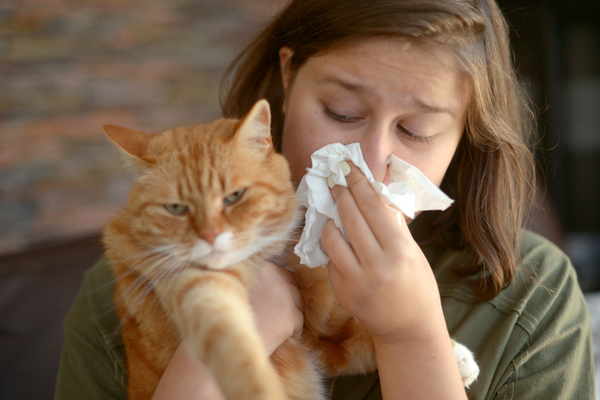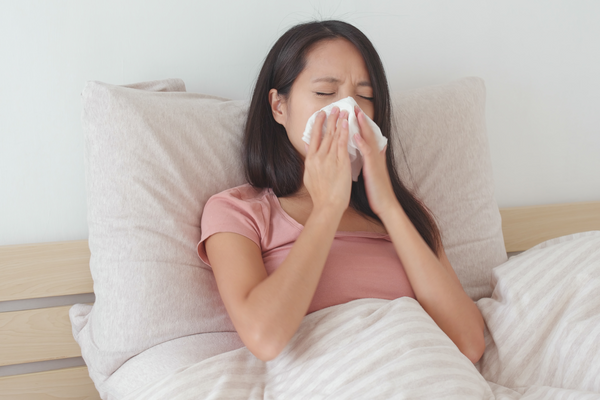The Impacts of Conventional Laundry Detergent on Human Health and the Environment

The Hidden Costs of Conventional Laundry Detergent
There is a growing awareness of the harmful additives in our food, cosmetics, and personal care products, but laundry products are often an afterthought. However, conventional laundry detergents and fabric softeners can leave chemical residues behind on clothing readily absorbed by the skin, like a sponge that absorbs everything it comes in contact with. These chemicals can strip natural oils away from your skin and cause various issues ranging from mild irritation to severe allergic reactions. Conventional laundry detergent can be especially problematic for people with sensitive skin or allergies as it may cause irritation, inflammation, or eczema flare-ups. Synthetic fragrances, optical brighteners, and other harsh ingredients are often the culprit behind these adverse effects.
Have you ever wondered what impact laundry detergents have on the environment? And is there an eco-friendly alternative to traditional detergents? We have the details for you here.
What Happens to Water After Doing Laundry?
Many of us don’t think twice before tossing in a load of laundry, but what happens to the water we use afterward? Of course, some water is retained by our clothes and towels – but the rest goes somewhere. The truth is that laundry can have a surprisingly large environmental impact.
When you do laundry, most of that water heads down the drain and eventually makes its way to a wastewater treatment plant. Here, it's filtered through various processes before being discharged back into rivers or oceans—or reused for other purposes such as irrigation or industrial applications. Depending on where you live, this process could be more or less efficient; some areas may use advanced technological processes like membrane filtration to clean wastewater before release. While the wastewater process removes larger contaminants, harmful chemicals like phosphates (a common ingredient in traditional detergents) often make their way into waterways.
It's also important to note that not all of the water used in laundry ends up in a wastewater treatment plant; some of it simply evaporates from our washing machines and enters into the atmosphere. To minimize this environmental impact, it's best to use a hypoallergenic laundry detergent that’s environmentally friendly and free from harsh chemicals such as phosphates.
Additionally, using cold-water washes instead of hot-water washes will reduce energy consumption and help lower your carbon footprint.
Toxic Ingredients Found in Leading Storebought Brands of Laundry Detergents
Many conventional brands of detergents in stores are full of chemicals that are unsafe for people, pets, and the environment. Avoiding these dangerous chemicals is necessary for improving human health and the health of our planet. These are just a few of the unnecessary ingredients commonly found in leading laundry detergent brands that are added to make products more appealing or effective:
Fragrance
When using fragranced laundry detergent, doing laundry doesn’t just make your clothes smell––it also sends a laundry-scented aroma around your home. However, many fragrance chemicals are linked to cancer, hormone disruption, and other chronic health problems. Fragrance chemicals can irritate your skin and cause redness, burning, itching, and rashes. They can also trigger eczema flares and worsen psoriasis.
Dyes
The synthetic dyes that laundry detergent companies add to their products don’t add any cleaning power. They do, however, cause a lot of allergic reactions and skin irritation.
Sodium Lauryl Sulfate and Sodium Laureth Sulfate (SLS/SLES)
The SLS and SLES are chemicals typically used to remove soil and stains from clothes. However, they also irritate the skin, eyes, and lungs and damage internal organs.
Phosphates
Phosphates have been linked to cardiovascular disease, osteoporosis, and death. Not only that, Phosphates have a significant impact on aquatic life, which we’ll address later on.
Chlorine Bleach
Chlorine bleach is common in many laundry products, and people even add more to their clothes. Bleach is highly corrosive and can irritate the skin, eyes, and respiratory system.
Optical brighteners or optical brightening agents (OBAs)
Optical brighteners are synthetic chemicals added to standard detergents to make laundry appear whiter and brighter. They don’t actually get clothes any cleaner, but they linger in fabrics long after washing and could cause a reaction. Some optical brighteners are documented carcinogens and hormone disrupters and are highly toxic to marine life.
1,4-Dioxane
This chemical is often used as a solvent in big-brand detergents. According to the U.S. Environmental Protection Agency (EPA), exposure to 1,4-dioxane may result in nausea, drowsiness, headache, and irritation of the eyes, nose, and throat. 1,4- Dioxane is readily absorbed through the skin, lungs, and gastrointestinal tract. The EPA classifies 1,4-dioxane as a Group B2, probable human carcinogen.
The National Institutes of Health (NIH) also warns that 1,4-dioxane is “reasonably expected to be a human carcinogen" because it has been shown to cause cancer in animal studies.
Some experts have found that 1,4-dioxane accumulates in the body over time. It also accumulates in the environment, like the infamous DDT pesticide.
The New York Laundry Detergent Ban
The New York State Department of Conservation recently established a legal threshold for 1,4-Dioxane, a potential carcinogen, in laundry detergent. Consequently, certain popular brands of laundry detergent have been temporarily prohibited until their levels of 1,4-Dioxane are lowered. 1,4-Dioxane is a common industrial solvent that is found as an impurity in many consumer products, including laundry detergents, and has been linked to cancer, liver damage, and other serious health effects. Although the chemical is not listed on the packaging, independent lab studies conducted in 2020 found high levels of the toxic chemical in several popular brands of laundry detergent.
Choosing laundry detergents that are free from unnecessary and harmful ingredients is essential. By selecting hypoallergenic, 100% biodegradable laundry detergent, such as The Ecology Works Anti-Allergen Laundry Detergent, you ensure that the product is gentle on your clothes, health, and the environment.
New York's decision to ban these hazardous laundry detergents is a significant stride toward establishing a safer and healthier environment and emphasizes the importance of selecting environmentally-friendly products.
The Impact of Conventional Laundry Detergent on the Environment
We’ve all heard about the devastating effects of garbage debris in our oceans and the harm it does to marine life. Still, there’s another rarely discussed danger – the after-effects of ingredients found in household products like conventional laundry detergent. When these products are washed down our drains after use, they make their way into rivers, lakes, and oceans, where they can pollute waterways and harm wildlife. For instance, the presence of phosphates in laundry detergent runoff causes algal blooms, which starve aquatic life of oxygen.
What Can We Do?
The good news is that we can take steps to reduce or even eliminate the impacts of conventional laundry detergents on our oceans and marine life. The first step is simply being aware of what types of chemicals that may be washing down your drain every time you do laundry.
How to Make Laundry More Eco-Friendly
With the current state of the environment, it is more important than ever to ensure that we’re doing our part in helping to protect the planet. One area where we can all do better is in our laundry habits. Here are some tips on how to make laundry more eco-friendly by washing in cold water, line drying clothes when possible, and using a 100% biodegradable laundry detergent.
1. Wash In Cold Water
The vast majority of energy used for laundry is heating the water. To save energy and water, try washing most of your clothing items in cold or warm water instead of hot. Most modern detergents are designed to work just as well in colder temperatures, so you won't have to worry about sacrificing cleanliness for sustainability. It also helps keep your clothing looking newer and longer by avoiding shrinkage due to heat. You'll also save money on your electricity bill!
2. Line Dry Clothes When Possible
Line drying is one of the oldest drying methods, and it's still one of the most eco-friendly ways to dry them today. Line drying eliminates the need to use an electric or gas dryer, which uses a significant amount of energy and contributes significantly to your carbon footprint. Line drying also helps clothes last longer because there’s less wear and tear from being tumbled around inside a dryer. And if you live somewhere sunny, line-dried garments will have a pleasant natural scent instead of that dryer sheet smell!
3. Use A Biodegradable Laundry Detergent
Most conventional laundry detergents are made with harsh chemicals that become environmental pollutants after use. Opt for biodegradable detergents free from harsh chemicals and artificial fragrances to ensure that these chemicals don't end up in our rivers and oceans.
The Ecology Works Anti-Allergen Laundry Detergent is derived from sustainable sources like plants and minerals. Plus, it’s just as effective at cleaning your clothing as traditional detergents, so there's no need for compromise!
The Benefits of Using a 100% Biodegradable Laundry Detergent
Biodegradable laundry detergents like The Ecology Works Anti-Allergen Laundry Detergent contain ingredients that are gentle on both skin and the environment. Unlike conventional detergents, biodegradable detergents do not contain harsh chemicals or synthetic fragrances that could harm human health or the environment. Furthermore, biodegradable detergents are much better at breaking down, which helps to reduce environmental pollution, without compromising the cleanliness or comfort of your clothing items.
Finally, using biodegradable detergents when washing your clothes will go a long way toward making your laundry routine more eco-friendly. Not only do these detergents contain fewer harsh chemicals than traditional detergents, but they are also biodegradable, which means they won’t harm wildlife or pollute bodies of water if they make their way into rivers or oceans via wastewater runoff.
What Sets The Ecology Works Apart From Other Biodegradable Detergents?
The Ecology Works Anti-Allergen Laundry Detergent is a powerful yet gentle hypoallergenic detergent formulated for allergy sufferers with the planet in mind. It contains plant- and mineral-based ingredients that keep fabric fibers soft while providing a deep clean without harsh chemicals or fragrances. It leaves nothing behind to irritate sensitive skin.
The Ecology Works Anti-Allergen Laundry Detergent is 100% biodegradable and free of perfumes, dyes, enzymes, d-Limonene Terpenes, Phosphates, 1,4-Dioxane, and Nitrates.
You can easily make your laundry routine more eco-friendly with just a few simple changes! Wash with cold water whenever possible; line dry clothes when you can, and use biodegradable detergents instead of traditional ones for a practical yet environmentally friendly wash cycle every time! Doing so will help reduce your home’s carbon footprint while ensuring that your clothes remain clean without harming the environment around you. Choosing a 100% biodegradable product like The Ecology Works Anti-Allergen Laundry Detergent is one small step we can all take towards reducing our environmental footprint while also protecting ourselves from potential health risks associated with conventional laundry products.
Have questions about which allergen-reducing products are best for your home? Contact us today to talk about allergen-busting, or check out our Instagram for everyday tips on reducing or preventing allergies for the long term.






